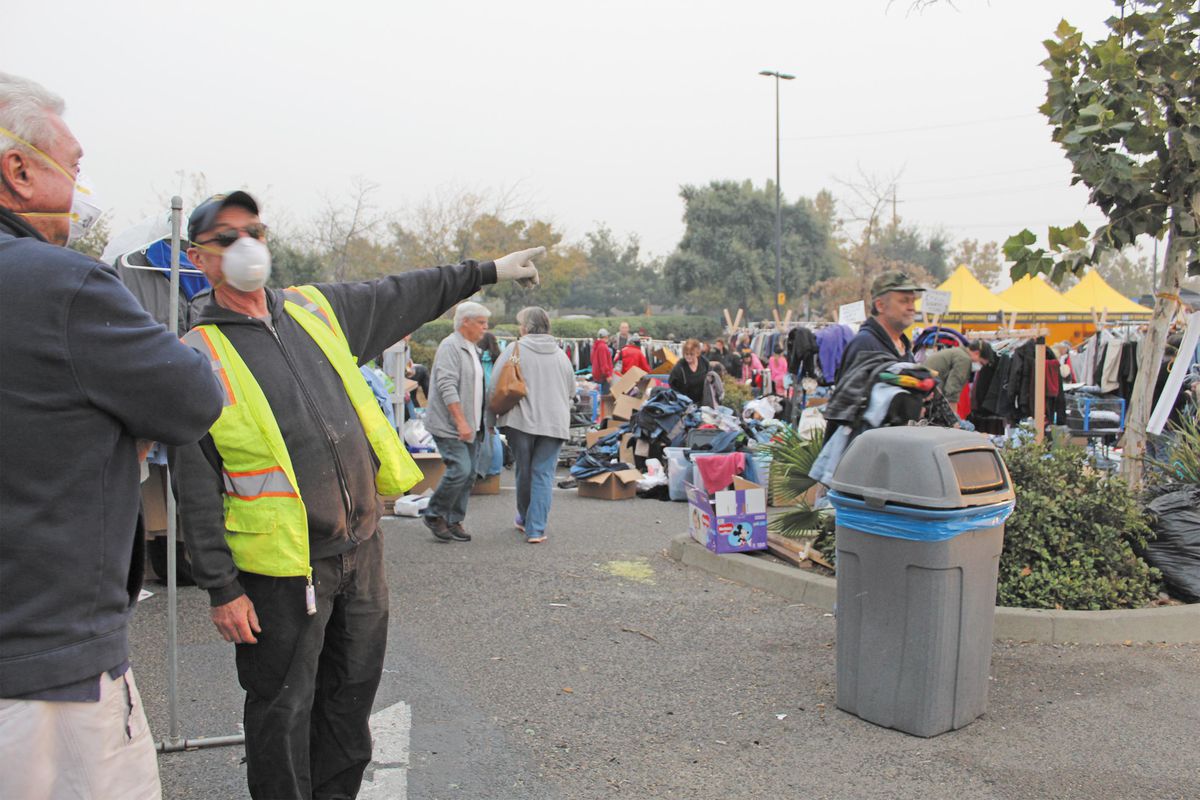
Photo by Merdith J. Cooper
Guido Barbero (masked), along with friends Truck-a-roni, wanted to help evacuees, so he set up operations in the Chico Walmart parking lot, with no expectation the donation center would become such a huge draw.
Each year at Thanksgiving, the Chico News & Review shines a light on local heroes, giving thanks to those who put in hard work for others. This year, we’re going to need a much bigger spotlight. In the wake of the Camp Fire, thousands of heroes have risen to the moment. So, in addition to those who have been volunteering throughout the year to help the homeless, local children and animals in need, we are also giving a giant “thank you!” to the many who have responded during this unprecedented local crisis. If we follow their example and lend a hand, we’ll get through this together.
Saluting the responders: volunteers and public safety personnel
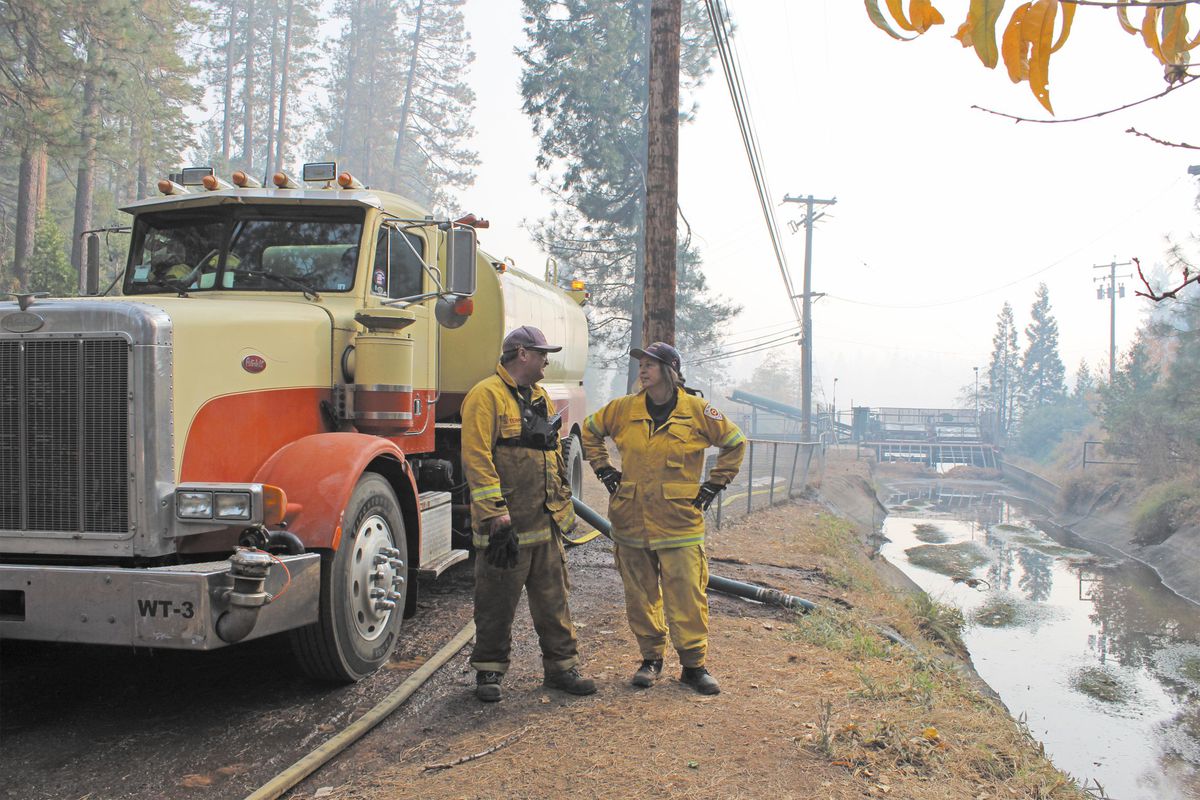
Photo by Merdith J. Cooper
Stephen Terry and Michelle Monnot, volunteer firefighters with the El Medio Fire Department in Oroville, draw water into their tanker from the De Sabla Reservoir above Magalia.
It goes without saying that the Camp Fire has irrevocably changed the fabric of our community. It has been almost two weeks since the firestorm ignited. Amid the destruction on the Ridge and in other communities, we’ve witnessed a wellspring of selflessness and kindness.
The Camp Fire has mobilized an army of Good Samaritans. Name a service, and there are volunteers providing it: food servers and chefs providing free meals at evacuation sites and restaurants for victims and first responders; community members collecting, sorting and distributing free toiletries, pet supplies and clothing; and churches and community organizations opening their doors to provide emergency shelter, everyday supplies and other resources. The list goes on and on.
This compassion also has manifested itself in public safety personnel, who’ve thrown themselves into harm’s way to beat down the blaze and protect the citizens of Butte County. They continue on the job to this day—and will work until the last of the flames is extinguished. Meanwhile, members of many agencies, from fire departments and State Parks to local police and sheriff’s offices, are keeping a watchful eye on the region, scouring it for survivors and protecting evacuees’ belongings from looters. They’ve also taken it upon themselves, alongside volunteers from organizations like the North Valley Animal Disaster Group, to help the beloved pets that were left behind.
One such story is that of an Oroville California Highway Patrol officer who discovered a flock of miraculously unscathed backyard chickens and grabbed some cereal and oats from a nearby (still-standing) home to feed them. Soon after, he connected via social media with the owners, who gave him some feed. When he returned, the chickens had laid several eggs. He’s not the only one going above and beyond his regular duties: First responders have forged relationships with stray pets, bringing them food and water, or transporting them to veterinary care.
Sure, some of these folks are paid to do what they do, but the sheer magnitude of their efforts has been staggering. Fire departments from across the U.S. have responded to our community’s call for aid. In addition, as of Friday (Nov. 16), there were nearly 5,600 Cal Fire personnel working on the Camp Fire, with 622 engines and 101 fire crews deployed.
Local government has mobilized as well. The city of Chico has taken in the town of Paradise, offering the municipality free spaces within the Old Municipal Building so the town can continue operations. The Chico Public Works Department accompanied Paradise Unified School District representatives (with an escort) into the fire zone to save $40,000 worth of food from the schools still standing, as well as the district’s computer servers with vital information.
There are too many efforts to list, but the message is one of unity and heroism. And we are grateful.
—CN&R staff
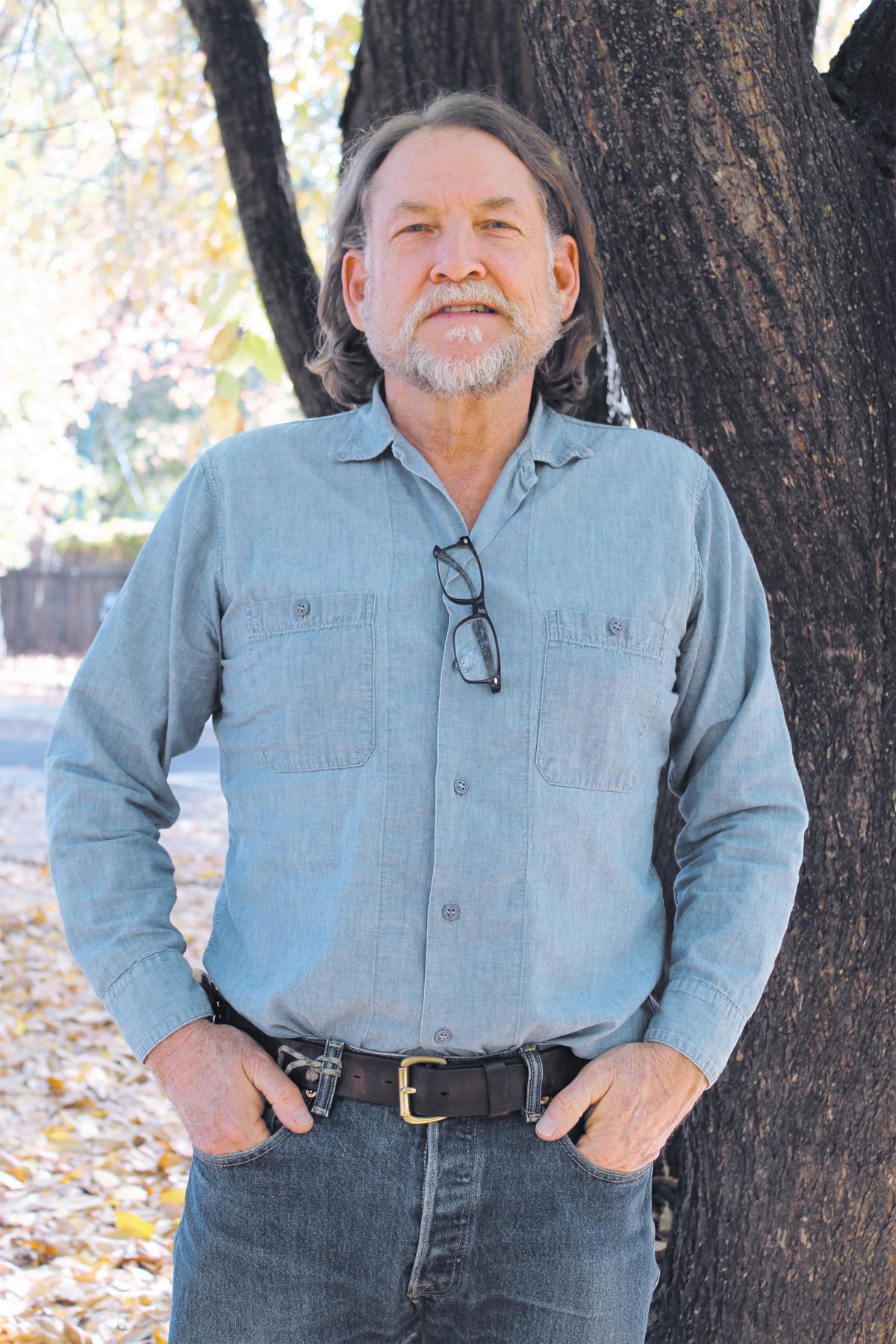
Photo by Melissa Daugherty
Patrick Newman
Friend at the plaza
Patrick Newman
Patrick Newman and his allies in Chico Friends on the Street do a lot for the city’s down and out. By his estimate, over the course of the past nearly three years, they’ve collectively handed out somewhere in the range of 7,000 bagged lunches, hundreds of blankets and sleeping bags, and hundreds of boxes of clothing and toiletries.
Much of that has been dispensed on Sundays at the City Plaza. Depending on the time of the month, 50 to 100 homeless residents join Newman and his crew of roughly a dozen like-minded folks—ranging from Chico State faculty members to millennials.
Newman’s approach is not embraced by all, especially certain community cleanup groups and the members of the City Council’s conservative majority. But Newman is undeterred.
“The plaza is owned on Sundays by this population, and I know that’s really offensive to a lot of people,” he said. “But in an increasingly authoritarian era, to me those are like the canaries in the coal mine. When we see that all those people are gone, either we’ll have moved into a Bernie Sanders era, where we’ve brought FDR-style programs to bear and dealt with our housing deficit, or they’ll have been removed somewhere else somehow. … I’m very fearful of the latter.”
Indeed, Newman argues that local homeless people have been increasingly targeted by the City Council. He’s particularly critical of the Offenses Against Public Property ordinance. That law was placed on the books several years ago and gives local law enforcement the ability to cite or arrest people on a variety of charges, including camping and storing their belongings in public spaces.
In his view, it criminalizes homelessness by creating a legal device to arrest people for activities required in daily living, such as sleeping and relieving oneself. At the same time, the panel has refused to set up toilets that are accessible 24/7 or take immediate action to shelter the hundreds of people who sleep on the streets each night.
Chico Mayor Sean Morgan has directly criticized Chico Friends on the Street, equating its members’ efforts with something they do to make themselves feel good. Newman is quick to dismiss that notion. The proximity to human suffering is quite painful, he said. It’s also expensive. Newman, a retired social worker, spends $500 a month out of his own pocket.
Newman’s well-publicized ejection at a recent City Council meeting—an incident in which he was placed in handcuffs and escorted out by police after going over his allotted speaking time—was a calculated move to bring visibility to the suffering of the hundreds of residents who live unsheltered.
Realistically, Newman says, he’s not offering solutions. His efforts are to offer a counter-narrative to the criminalization route the city has adopted. The main goal—even with the food distribution—is to make it clear that homeless folks have a right to exist.
His message directly to those on the streets: “I see you as a human being that, in the absence of shelter, has a right, a human right, to be in our public spaces, and to be tolerated there or be accepted there, to be affirmed there as a human being, to be included in our community … the sandwich is just a way of saying that for me, a way of delivering that.”
—Melissa Daugherty
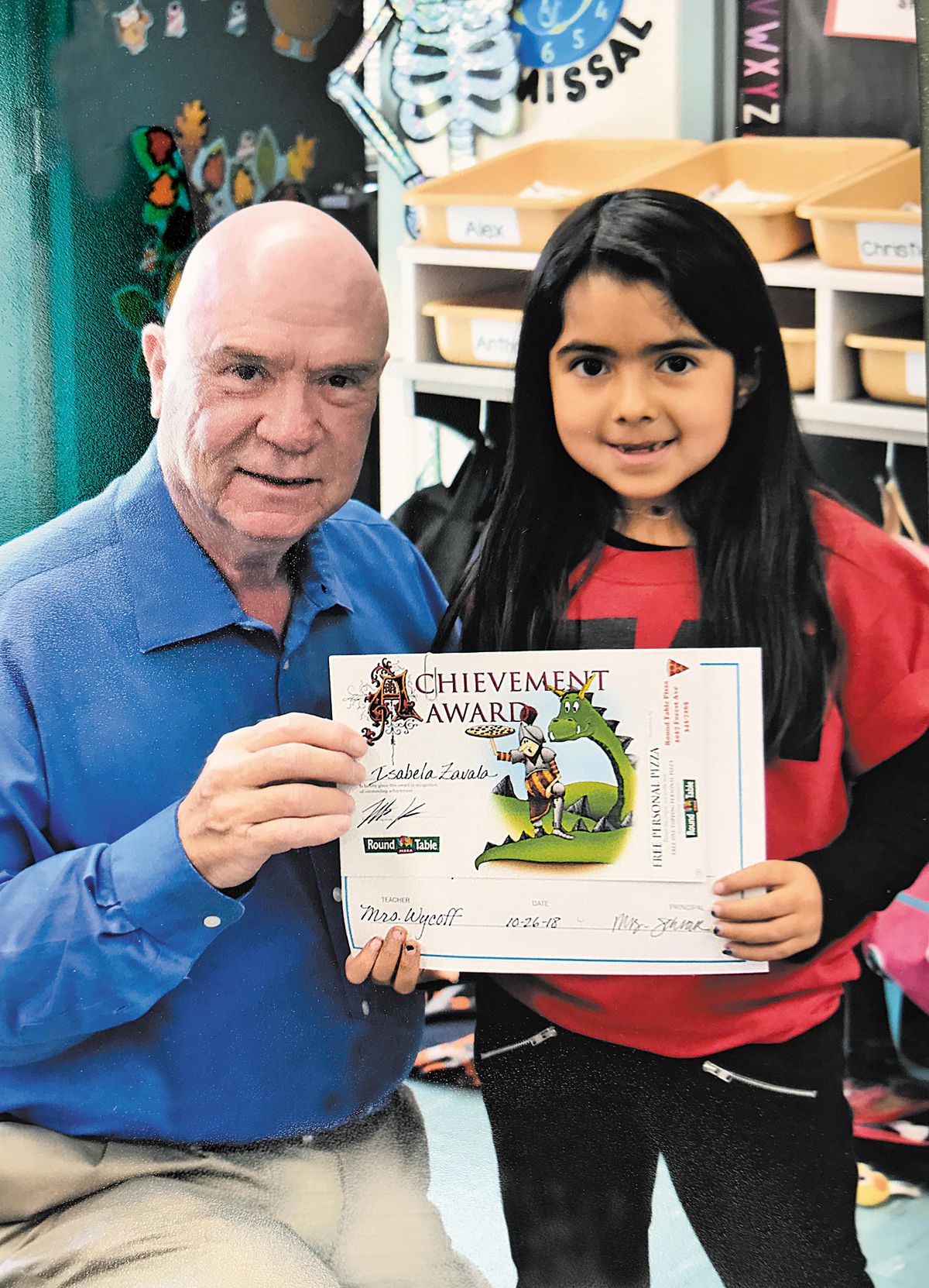
Photo courtesy of Little Chico Creek Elementary
A.J. Haggard hands a citizenship award to Little Chico Creek student Isabela Zavala.
Building future citizens
A.J. Haggard
Over the course of his 10 years working as a deputy district attorney for Butte County, A.J. Haggard saw a lot of hard cases. But all the while, he knew that the problems of those he was responsible for prosecuting didn’t start with their crimes of the moment. He also knew that, for many of them, it wouldn’t be the last of their troubles.
“Sometimes you look across the table [and you can tell] things are not going to go good for them,” he said. “[And] you realize they don’t have any clue why.”
When Haggard retired five years ago, he says he started to think about ways he could help people before those destructive patterns have a chance to develop. It was immediately apparent that he had to get to them when they were young and try to instill the traits common to happy, well-rounded people—things like kindness, respect, empathy, etc.—and get kids talking about them. So, he reached out to the principal of the school closest to his house—Kristen Schrock at Little Chico Creek Elementary—and pitched the idea of creating a citizenship-award program that started with kindergarteners. Schrock was all in.
That was three years ago, and the Little Chico Creek Citizenship Program is now a school-wide initiative that incorporates the teaching of nine character traits in the curriculum at all grade levels. At the end of each month, each class in the school votes for the person in the room who best represents the trait, and Haggard shows up with a dignitary from the community—people like the chief of police or Chico State President Gayle Hutchinson—hands each honoree a certificate and a coupon for free pizza and takes a picture.
“It’s been a really cool thing,” said Schrock. “He really wanted to get some of these traits infused in the schools. … He needed a springboard, and Little Chico Creek was a lucky recipient.”
The LCC teachers decide the traits to focus on each year. This year’s nine are positivity, grit, safety, kindness, respect, honesty, courage, helpfulness and responsibility.
Then, at the end of the school year, Haggard rents out the Elks Lodge and brings more guest presenters to speak on citizenship and hand out “citizen of the year” awards for each grade level.
For the first assembly, Haggard said he hoped 50 or 60 would show up. They had 470 come through the doors.
“The first kid up was Dax, a kindergartner,” he said. And after Sheriff Kory Honea handed him his award, the crowd went wild and the kid beamed.
“That little kernel of pride, it’s a ridiculously important thing,” Haggard said. “It was really gratifying.”
Since then, the awards show audience has grown to 600, and Haggard still foots the bill for hall rental, plus snacks for everyone.
Haggard says one of the most important aspects of the program is that the playing field is level. Even kids who aren’t star students or athletes, or maybe have difficult situations at home, can get positive attention for simply being good people. “[We] try and give kids a chance to have some power in their lives; show that they can get recognition,” he said. “Let’s give everyone a chance to have the president of Chico State give them an award and turn around and have 600 people cheer for them.”
And the kids have responded to him as well. “They love it,” said Schrock. “Mr. Haggard has rock star status on our campus. … He’s devoted a ton of time and money and organization and planning to this program. He’s a stellar man.”
—Jason Cassidy
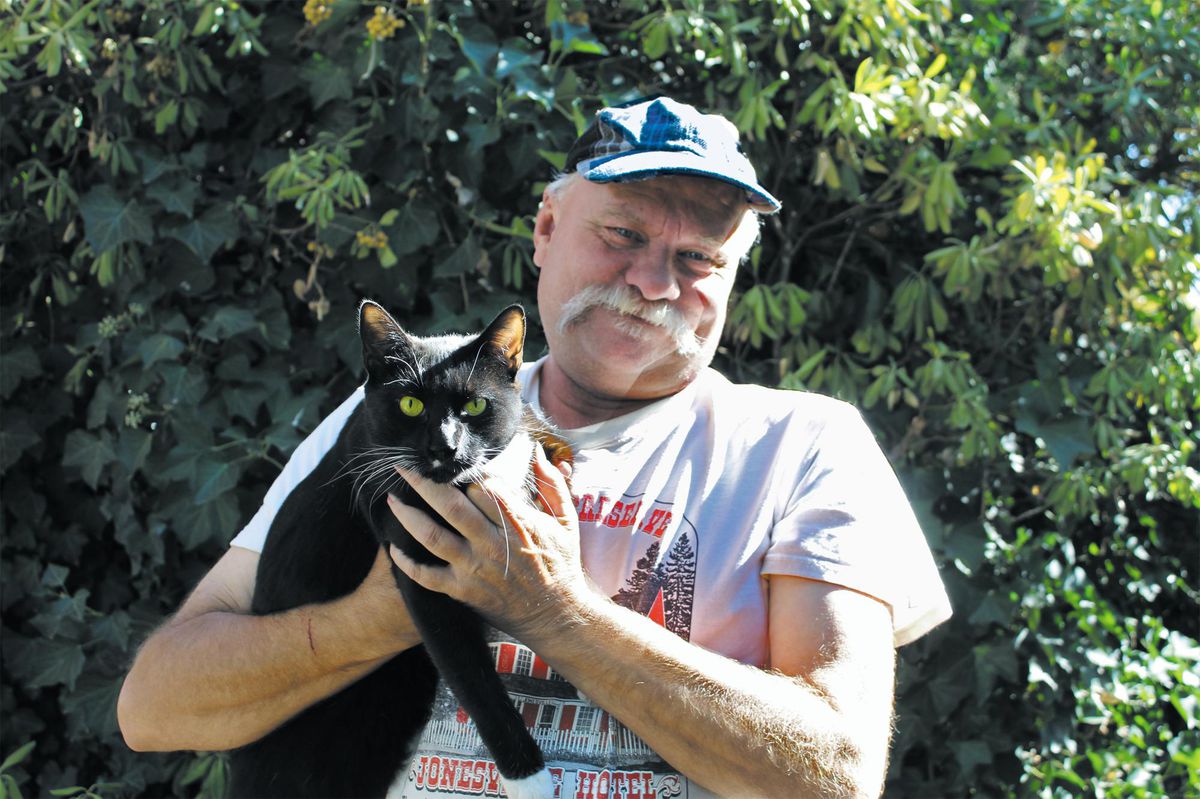
Photo by Ashiah Scharaga
Dave Wallace and Kerwin.
Cat man
Dave Wallace
About 20 years ago, Dave Wallace spotted four frightened kittens mewling from the bushes at Scotty’s Landing.
Wallace had always been an animal lover, though more of a “dog guy,” growing up as a bird hunter and fisherman, but the scene tugged at his heartstrings—these brown tabby kittens had been dumped on the banks of the Sacramento River, and now it was flooding, threatening to drown them.
He and a friend rescued them, Wallace adopting two, which he named Mio and Rio.
At that moment, a love of felines was born.
“It kind of was this ‘aha’ moment,” he said during an interview in his living room in central Chico. “How could anybody treat such a nice animal in a horrible way?” Three of his fur babies rested nearby, while another three (all rescues) hid, shy around strangers.
Wallace estimates he has now rescued at least 2,600 cats, and he’s done it all without asking for a dime. He is one of about six cat-trapping volunteers with the Neighborhood Cat Advocates, an organization that aims to keep the cats of Chico safe and their populations under control. He joined shortly after they formed in 2013 (helping cats on his own and through other organizations for about two years prior), and it’s work that has kept him busy and fulfilled in retirement.
Wallace has found cats dumped in orchards, car lots, school campuses and river beds—and he’s gone right in after them, coaxing them out of hiding places into cages. He takes the friendly, sociable ones to local shelters, while the feral felines are spayed and neutered, given a rabies shot then released back into their colonies after recuperating.
The hardest times are when Wallace comes across animals that have been treated poorly or have clearly been dumped to fend for themselves. It’s not uncommon for him to bring in cats with wounds from BB guns.
It’s not always easy to trap savvy street cats or ferals, but one of the most difficult parts of his job is actually booking the spay and neuter appointments, he told the CN&R. The advocates often will have to plan trappings in advance so that they can get many cats into a vet, and veterinarians are often booked, so they’ll drive around to multiple locations for one colony trapping. The advocates are hoping to raise enough money to get their own mobile van for procedures, about $100,000 fully equipped, and they are always looking for more volunteers to foster friendlier cats.
Wallace said he has never seen two cats that are alike. Their independent nature can be misleading and work against them, he continued, but they really do form deep bonds with one another and their human companions.
His home is clearly one of a cat lover: There’s a playful kitten on the indoor welcome mat, a stuffed cat pillow on a couch, towering cat scratch posts, and The Complete Illustrated Guide to the Cat on an end table. Wallace rescued all of his animals from the streets of Chico—there are tuxedo cats Kerwin and Percy, bobtails Bob and Brie, colony mates Ace and Roxy, and his latest rescue, Quincy.
“Cats are resilient. They can overcome a lot,” he said. “But they don’t have nine lives like everyone thinks. They’ve got one pretty-easy-to-lose life.”
—Ashiah Scharaga
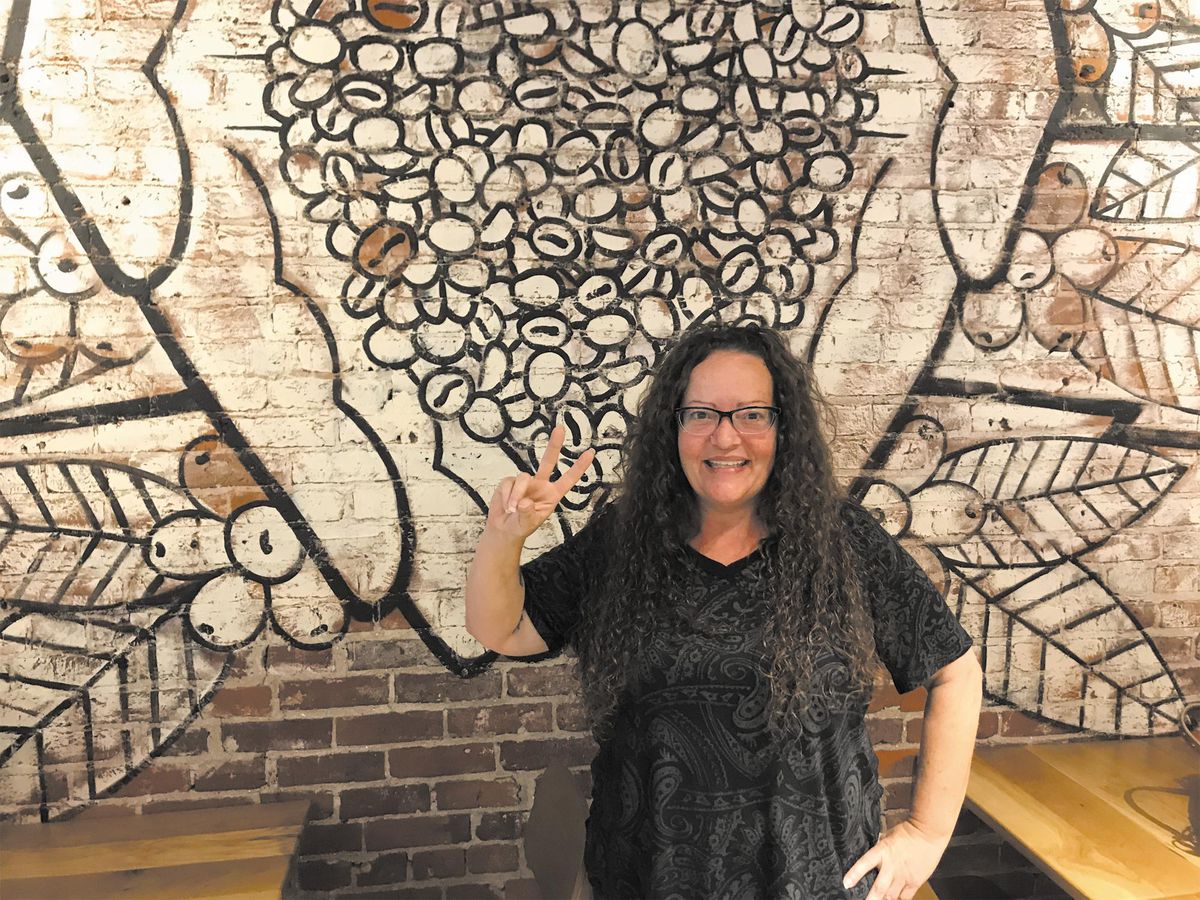
Photo by Jason Cassidy
Catina Lyons
Delivering dignity
Catina Lyons
Catina Lyons had been living homeless in Chico for years when, in 2003, a combination of luck and kindness put her into a trailer that was earmarked as trash, and from there she was able to start stabilizing her life.
It didn’t happen overnight. It would be another three years before a drunk-in-public arrest (Nov. 11, 2006, she recalled) gave her the impetus she needed to walk away from drugs and alcohol and do the work needed to re-establish a relationship with her young daughters, who had been in her mother’s care. She’s been sober for 12 years.
Now, Lyons is working to create a nonprofit to help homeless people, people she understands because she’s been in their shoes.
Lyons started her project, dubbed Donations With Dignity, on a small scale in 2013, the same year she launched the popular Facebook group “530 Pets.” She handed out “Bags of Love” as a way to support and care for some of the area’s most vulnerable citizens. At first, she took her own blankets and gave them to people on the streets who were cold. Before long, she began collecting donations, and now she picks them up almost daily. Lyons then packs the items into individual bags and hands them out to local homeless people.
“The coffee fixings I put together because, back then, we weren’t allowed to be served caffeinated coffee at the Torres [Community Shelter] because it’s considered a drug, and I had to have my coffee! So for every cold season, I come out with coffee.” A typical bag includes a bottle of water, a coffee single, two creamers, three sugars, a spoon, three packets of saltine crackers, two cups of peanut butter, and a disposable cup. Other bags might include socks, rain ponchos, instant noodles or granola bars.
For Christmas, she does something extra special. “I find only sleeping homeless people and I leave them a big bag of hope by their bed. If they look cold, I lay an extra blanket from my car on top of them.” Each bag contains snacks, hygiene supplies, candy canes and two specific, brand-new gifts. This year, she’s planning to give out plush throw blankets and the New King James Version Bible. She’s gone from delivering 20 of these bags the first year to 40 bags last year, and she plans to deliver 60 this Christmas.
Lyons is starting to draw attention for her acts of kindness. “Last year for the Channel 12 news, Action News Now, I was nominated for the Human Kindness Award. I got the award and was featured on the news. I was really proud of that.”
But, then there are those who don’t particularly appreciate her efforts. “My phone number was on my Facebook page, but then I started getting really obnoxious texts.” She is genuinely confused as to how people could be against what she is doing. As she says, “It could be anyone [who becomes homeless]. Look at all the fires that just happened. In the blink of an eye, all those people lost homes.”
Lyons is currently accepting donations for her Christmas Bags of Love as well as her regular care packages. She has a donation drop-off spot in Willows, where she lives, but she distributes her bags in Chico and often picks up donations. The easiest way to connect with her is through her Facebook page (search “Donations With Dignity”).
—Cathy Wagner
